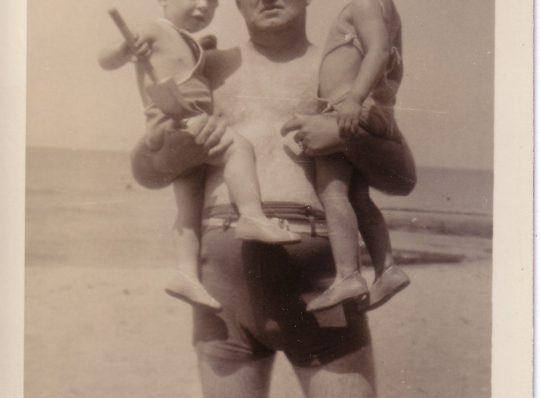by Joy Loverde
 How much more can this 84-year old woman take? As if a long-distance relocation was not enough to put someone over the edge at any age, the fact that Bill is now physically and mentally unstable may just do her in. Most people spend their energies watching the person who is sick and anticipating his or her needs. I spend the majority of my time observing the family caregiver. I’ve witnessed far too many family caregiver deaths than I’d like to remember.
How much more can this 84-year old woman take? As if a long-distance relocation was not enough to put someone over the edge at any age, the fact that Bill is now physically and mentally unstable may just do her in. Most people spend their energies watching the person who is sick and anticipating his or her needs. I spend the majority of my time observing the family caregiver. I’ve witnessed far too many family caregiver deaths than I’d like to remember.
Alone and scared, Mom drives to the hospital to be with Bill. He’s on heavy doses of medications that are meant to keep him from acting out again. She calls and tells me he’s sleeping soundly. I urge Mom to get in the car and go home to get some sleep. She does not want to leave his side until she is convinced that he will not act out again. I keep reminding her that she is going to need energy for yet another long day. She finally agrees and heads for home.
In the meantime my mind is racing when I hang up the phone with Mom. The challenge tomorrow will be to place Bill in another care facility. This will be very difficult now that he has a record of violent behavior. I say my prayers and turn out the lights.
Before I go any further I would like to comment that the job of hospital discharge planner is one of the most difficult careers a person can choose. Imagine being in the role of assisting family members day in and day out who are in crisis mode and at the height of their emotions. The hospital discharge planner should always be treated with as much respect as one would treat the doctor and nursing staff. Never raise your voice or speak to them in anger. Discharge planners follow doctor’s orders and comply with Medicare regulations. They are messengers of information family members often don’t want to hear when it comes to discharging patients. Family members are rarely prepared for a patient’s discharge, and often take it out on the hospital discharge planner. So here’s a word of warning. Be VERY, VERY nice to the discharge planner because he or she holds the cards as to what happens next to your loved one.
The next morning I’m back on the phone with the discharge planner to discuss finding Bill a place to recuperate. She does not mince words and tells me there’s a real good chance than no one will take Bill into their care now that he has a record for acting out and aggressive behavior. In a calm and respectful voice, I tell her I understand and then ask her about options all the while reminding her that Mom is 100% incapable of caring for him at home. She takes a liking to me. She’ll make some calls in my behalf.
Thirty minutes later, the phone rings and it’s Allan from Signature Healthcare. His voice is soothing and compassionate as he interviews me regarding Bill’s personality. I do my best not to paint a false picture. Allan tells me he will be glad to take Bill and reassures me that Signature is much better equipped to handle more aggressive patient behavior. I breathe a sigh of relief.
A critical lesson to be learned in eldercare emergency situations is no matter what, stay calm. Anger gets you nowhere especially when communicating with professionals who are attempting to be of assistance.
Now that Bill is (hopefully) settled at Signature, my sisters and I can continue planning the long-distance move. We make plans to take turns getting on airplanes and physically being with Mom. There’s furniture and more stuff to clear out the house. And in the back of my mind I am thinking about Bill. Now that he is no longer physically and mentally able to fly to Chicago how will we relocate him? Driving is the only option, but how, and who? Right now he’s confused and forgetful, and tells Mom he’s in a lot of pain.
I’ve got a little more time to figure this problem out.







1 Response